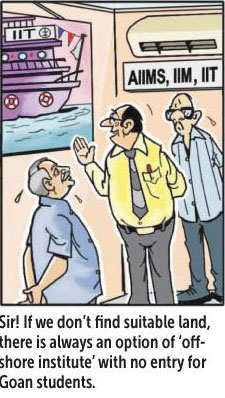D E ROBINSON
A significant improvement in operation of the Income Tax Department was brought 3 years ago. The faceless scrutiny assessment procedure terminated effectively endemic corrupt practice that prevailed for many years.
The progress of scrutiny assessment in faceless proceedings, has become tardy. It appears the officers are not interested in completing assessments. The response and evidence uploaded are ignored. The consequential assessment orders reveal lack of application. Irrelevant details are being called for most of which are not even perused before making the final order. A co-operative bank selected for scrutiny was asked to prove the credit worthiness of all depositors.
The procedure of faceless proceedings was extended to first appeal before Commissioners of Appeal. There is hardly any movement in clearing appeals. In the absence of limitation numerous appeals are pending. Responses and written arguments are being asked for. Many appeal orders are pending for months/years since the date of filing of response. Except for the reason that I-Tcommissioners designated to adjudicate the appeals have ceased to function so many appeals cannot be pending.
Even before the faceless proceedings were instituted the assessing officers never expeditiously disposed of rectification applications and requests for orders giving effect to appeal orders. Reminders for payment of pending demand were issued without verifying records. Complaints against incompetence invited petty minded revenge. Most professionals desisted from complaining. Pending rectifications indicate false book demand which has been transferred to CPC. After taxpayers responded to erroneous notices issued by CPC, they were advised to write to the jurisdictional officers. Despite communications to these officers many rectifications are pending. It is possible that several crores of rupees are being carried forward erroneously as pending demand. Notices are being received by taxpayers requiring clarification on incorrect pending demands. The officers may not have the rectification applications filed by the taxpayers on their record. Taxpayers who have retained acknowledgement of rectification applications will be able to produce the past records and many who have not, would be left in a lurch. If rectifications applications are not dealt with within four years from the date of rectifiable order, subject to receipt of the rectification application from the taxpayer in 4 years, the rectification as asked for should be considered admitted. There are cases of demand recorded without service of demand notice. In the absence of such notice when the demand was raised, demand is not enforceable.
When the taxpayers file clarifications and proof of having filed rectification applications the officers have to correct the records. They should ensure all applications are acted upon expeditiously. It is important that rectification requests not acted upon and are time barred, are not turned against the taxpayers who are entitled to claim the benefit rectifications as requested where the limitation has expired.
Being ruled by machines instead of men eliminated the venom of corruption, but unfortunately machines have limitations.
